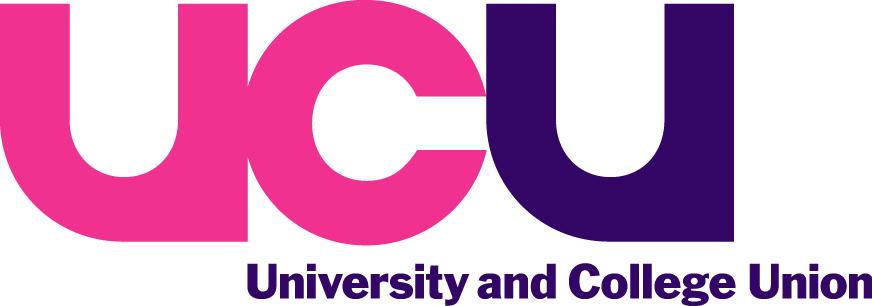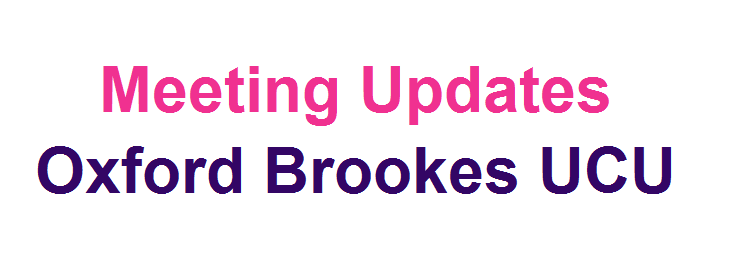Category: News
Teachers’ Pension Scheme Update
In September 2018, the government announced that HE employer contributions to the Teachers’ Pension Scheme (TPS) in England & Wales were to increase by 7.2 per cent to 23.8 per cent. The TPS is the pension scheme which most post-92 institutions and their academics reside under. These increases represent a very significant increase in real £ terms to the employers – in the case of OBU approximately £2.3m annually. The central questions surrounding this uplift in contributions are “how will the University meet this increased bill and what might be the fallout from this for staff”? Before we answer these questions it is wise to consider what has already gone before in recent times, as recent/ongoing events will fashion employer response.
Of particular note are UG recruitment trends over the last 3 years. Both nationally and within OBU we are experiencing sharp declines in UG recruitment levels. Whilst our employers are trying to calm the waters by indicating that the worst is over i.e. we only have a 3% decline in the academic year 2018-19 as compared to a 20% decline in 2017-18, the fact remains that over the last 3 year time period, income generation from UG fees has dropped sharply. As student fee income is our “bread and butter” – in essence we have a lot less money coming in with which to pay the bills. To potentially compound the impact of this – the Augar Review of post-18 education will look at UG fee levels, with several leaks suggesting that the annual fee will be reduced to £6.5k a year – should this become a reality, again a lot less money with which to pay the bills!
We have already experienced the impact of this downturn in our income generation in recent times in the shape of UG module/course closures and the implementation of a voluntary severance scheme (VSS) last summer. Both had significant impact. The removal of elements of our UG offer may well have a part to play in our recruitment difficulties, although there are other equally significant factors to take into account. Unquestionably however, we have concerns about the impact to our students’ study programme and its flexibility – with VSS as a senior management initiative at odds with their stated aim of “enhancing the student experience”. For us as a Branch the success (or otherwise) of the VSS, which aimed to save approximately £3.7m, has been difficult to gauge, as a lack of transparency by the senior management in terms of information provision has rather obfuscated the impact of the initiative. If, as we suspect the targets for VSS were not reached, then what next? Given the escalation in pressure upon the University to service a large and not entirely expected increase in pension contributions will we see yet more cuts in our academic offer? As Universities are knowledge-based industries with a very high proportion of their expenditure necessarily going on staff, some will argue that it is inevitable that they will explore reducing that expenditure via compulsory redundancies.
But what might it mean for our pensions? Already employers within the independent arm of secondary school provision are indicating that they are unable to afford the increased contributions and will be forced to withdraw from the TPS altogether, substituting it with a much poorer performing (but cheaper to them) alternative. Many others are indicating that the additional costs will impinge on their ability to fund staff pay increases and other staff benefits. How long will it be before Universities begin to explore similar mechanisms? Alternatively, Universities might simply do their sums in terms of how many staff needs to be shed in order to keep their annual TPS contributions at those similar to current.
-Prof Stewart Thompson
Department of Biological and Medical Sciences
July 2018 Newsletter
The July newsletter is here! Items on the VS scheme, restructuring, electronic marking, and the latest consultative ballot on pay.
Management Response to 5% Cuts
February Update

Before getting to all of that, I’d like to remind everybody of the next branch meeting, scheduled for ***Wednesday 7 March at 12pm (Gibbs 217)***.
In the meantime, we would like to encourage members to append the following message to their email signatures, as a show of support and solidarity with UCU colleagues that are participating in strike action.
Reports on Exec meeting 6 February 2018
Minutes for the Workload Planning review group meeting (WLP), the Joint Staff Committee meeting (JSC), Catering, and the Associate Lecturer (AL) policy have been uploaded to Rules and Minutes page. Please have a look in the following weeks and we can discuss in more detail at the Branch meeting on 7 March.
On Friday 2 February, your co-Secretary Maïa Pal met with two Student Union officers, Sam Cockle-Hearne (Vice-President Welfare) and Becca Harrington (Women’s officer), as well as two UNISON reps, Jon Appleton and Edwin Thomas.This follows from our previous meetings with Student Union officers last semester and last Spring. In November 2017, Andy Kilmister (Co-Secretary) and Maïa Pal met Diko Blackings (President) and Harriet Cherry (Vice President for Academic Experience) and it was great to be introduced and discuss our general roles and issues with the new officers.
On Friday, we had our first ‘3 Union’ meeting as UNISON were also represented. After some very productive discussions, we institutionalised the meetings, and have 3 more dates booked to meet before the end of this academic year.
December Update
Dear Brookes UCU members,
We are delighted to report we have appointed a new Branch Administrator. James Leveque (who is also teaching and a Research Fellow at the Institute for Advanced Study of the Humanities at the University of Edinburgh) will be working for us one day a week from 10 January 2018.
Pensions Dispute
Most of us at Brookes are not concerned with the current dispute over USS pension schemes. However, if you are a member concerned, please let us know or contact UCU nationally to get advice on how the dispute might affect you. For more information: https://www.ucu.org.uk/strikeforuss
Health and Safety rep position still vacant
We are still looking for a new Health and Safety rep for 2018-2019! There are training and hours allocated for this position, and it is a crucial role to play. Please get in touch if interested!
Updates on recent meetings
You can find minutes and reports from our latest meetings on our website:
http://oxfordbrookes.web.ucu.org.uk/about-us-2/meeting-minutes/
- Minutes of Branch meeting 15 November 2017
- Minutes of Exec meeting 11 October 2017
- Report of meeting with Student Union officers 13 November 2017
- Report of meeting with Equality, Diversity and Inclusion Advisory Group (EDIAG) 21 November 2017
- Report of Workload Planning Review Group 28 November 2017
Dates of next Branch meetings and AGM for all members to attend:
***7 March 2018 12-2pm***
***2 May 2018 (AGM and Open meeting)***
We are planning some exciting events for this date such as guest lectures and documentary screenings. If you want to help with these events, please get in touch!
Dates of next Exec meetings:
6 February 2018
13 March 2018
25 March 2018
Dates of your officers’ next meetings with management (please feedback any concerns in advance):
- Joint Staff Committee (JSC)
14 December 2017
26 March 2017
14 June 2017
- Workload Planning Review Group (WLPRG):
16 January
Report: UCU Congress 27-29 May 2017
Below is Bob Langridge’s report of the 2017 UCU Congress in Brighton. You can read Sally Hunt’s address here.
UCU CONGRESS 2017
Once again, I thank you for your support in representing this branch at the UCU Congress in Brighton which took place over the late May bank holiday.
At an event such as this, the majority of business is about reports back from the NEC and its various sub-committees. That is not to suggest that the debates were not lively and at times excited; nevertheless, unlike some previous congresses, the contributions were generally good-natured.
The centrepiece of Congress was the General Secretary’s report. Key points included, falling staff numbers despite the rise in income fees, the tackling of pay inequality, casualization and escalating workloads. Finally, while not abandoning national bargaining, a lot of these issues need to be addressed at more local level.
The major issue, however, was future approaches to industrial action in the light of past performance. A commission will be set up to look at alternative approaches and a start will be made to make the approach less top-down with more consultation with local branches.
While most members at Brookes are in the Teachers’ Pension Scheme, there are some who are signed up with USS. USS has gone through an extremely difficult few years and a report by First Actuarial comparing USS with TPS has been produced. Should any USS member wish to see a copy, please contact us.
–Bob Langridge
Sixth OBU UCU Newsletter, 25 May 2017
Report: HSS Faculty Meeting on Workload Planning, 15 May 2017
This is a report from Maïa Pal, who attended the HSS Faculty Meeting on Workload Planning of May 15, 2017 following a consultation with HSS UCU members.
HSS Faculty Meeting on Workload Planning | May 15, 2017
Report: Student Union meeting, 9 May 2017
This is a report from Maïa Pal, who met with representatives of the Student Union to discuss future collaboration.
Report from UCU – Student Union meeting
9 May 2017 | 2-3pm JHB 202
Present: Maïa Pal (Lecturer International Relations, Social Sciences UCU rep), Elena Saldana Quintans (SU President), James Patton (SU Vice President of Academic Experience), Robin Mcsorley (SU Deputy Chief Executive)
Agenda:
1. Presentations, long term objectives, and schedule for future meetings
2. Common issues – NSS Boycott, Student reps
3. Communication / website
-
Presentations/Long Terms Objectives/Future Meetings
Objective for SU and UCU to work more closely together on a variety of issues – which will likely increase as the moves to and from Headington come nearer. Objective to meet regularly in a similar format, hopefully with an extra UCU exec member, and to include a slot for SU officer at UCU AGMs (next date for this TBC – UPDATE: inviting a SU officer to UCU AGMs was agreed by UCU’s AGM held on 10 May 2017). Agreed for Maia Pal to meet with new officers who are taking position end of June. Meeting to be organised in July, to be booked by SU once calendars are clearer, and from then organise a set of meetings during the year.
-
Common Issues
NSS Boycott: Both officers commented on lack of effectiveness of NUS boycott – President disagreed with the campaign, and claimed that they felt TEF forced university to improve its position and approach towards students’ demands regarding teaching and services provided. The changes to the TEF being discussed nationally were positive and pushing for less use of metrics, more focus on employability for part-time students and attainment gap for BME students. The president also stressed the importance of NSS comments for the university and how seriously she felt they were taken into account, so she felt the boycott was counter-productive.
The recent NUS conference decided this year to work to develop an alternative framework or TEF for measuring teaching, but also others aspects of university life (volunteering, issues, campaigns, etc.). Nation-wide student union consultation is to be compiled by the NUS, and data is to be analysed locally. No details given by NUS yet. SU have local discretion as to how to compile or analyse data for now. Brookes are going to look at data from the Teaching Awards to find common points or characteristics that have motivated students to nominate teachers.
Both officers emphasised how they were keen to have staff and UCU input, and I stressed how important that would be for us, after explaining why staff may have some cautionary remarks concerning this data, or how it would be used and analysed.
This led into a discussion about teaching methods, the outcome of which was that it would be useful for staff to be clearer about what teaching methods they use, and why, so as to help students also better evaluate and understand the different approaches and styles of teachers. If we are moving into a TEF environment with increasing student-led evaluation of teaching, more discussion and collaboration between unions is absolutely essential. The officers also noted the differences of opinion about teachers depending on the degree level (4, 5, 6, or PG) and we discussed how we could maybe extract this from the analysis of data.
Student reps: the SU is rolling out a new policy for student reps starting this September, which will be announced shortly. There has been confusion and rumours about this policy, and the officers were eager to stress that their policy did NOT involve telling students not to attend departmental meetings. We discussed the various challenges with student attendance, their reluctance to attend long and complex meetings, but also why their presence is absolutely essential, especially in line with previous discussions of the need for more student input into teaching methods and rationale so as to improve evaluation of teaching. Option to organise meetings so as to deal with issues requiring students all in one go, but I stressed this was not necessarily easy or even possible for us.
To recap, officers stressed there was a wide consultation of faculties, committees, lecturers, high percentage of reps, all across faculties, as well as SSCs and associate deans for student experience.
The policy will, most importantly, put in place faculty training of REPs by SSCs and standardise procedures and practices across university.
-
Communication
We ran out of time but covered some communication issues faced by both unions, in terms of how best to reach both our memberships, and how to improve the image and knowledge of unions’ work, and how we could share valuable insights with each other about how to solve similar problems we face in the current climate of education.






